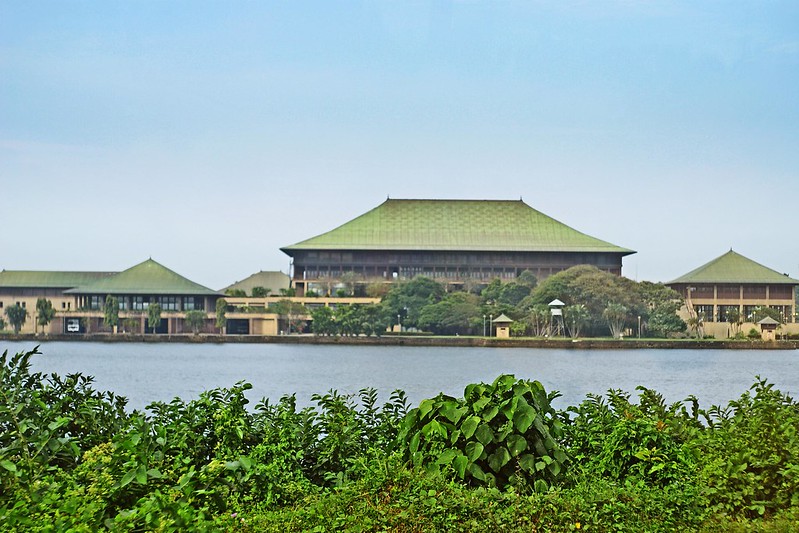By Dr. Jayampathy Wickramaratne, 4 June 2024

Parliament of Sri Lanka (photo credit: Hafiz Issadeen via flickr)
United National Party General Secretary Range Bandara’s statement at a media briefing at UNP Headquarters that the terms of the current President and current Parliament should be extended by two years ‘to save the Nation’ has drawn the ire of the people at large, with even the UNP’s ally (for the moment?), the Sri Lanka Podujana Peramuna distancing itself from the proposal. The essence of the people’s response is that the present Parliament has lost its legitimacy, and President Wickremesinghe has been elected not by the People directly but by that very Parliament for the remainder of the term of President Gotabaya Rajapaksa, who was forced to resign.
An amendment of the Constitution ordinarily requires a two-thirds majority in Parliament. Article 83 provides that a Bill for the amendment or the repeal or replacement of or which is inconsistent with any of the provisions of Articles 1 (The State), 2 (Unitary State), 3 (Sovereignty of the People), 6 (National Flag), 7 (National Anthem), 8 (National Day), 9 (Buddhism), 10 (Freedom of thought, conscience and religion), 11 (Freedom from torture) and Article 83 itself and also a Bill which seeks to extend the term of office of the President or the duration of Parliament to over six years, would become law only if it is passed by a two-thirds majority in Parliament and approved by the People at a referendum.
It has been argued that since the proposal is to extend the terms of the current President and Parliament to seven years, it can only be passed with a two-thirds majority in Parliament and approval at a referendum. It follows from the argument that a referendum would not be needed if the terms are to be extended to six years only.
The writer takes a different view, namely that the terms of an existing Parliament and a President-in-office cannot be extended even with the approval of the People at a referendum as they were elected for a specific term. Such an extension would go against the spirit of the Constitution.
Read the full article here:
The Island
